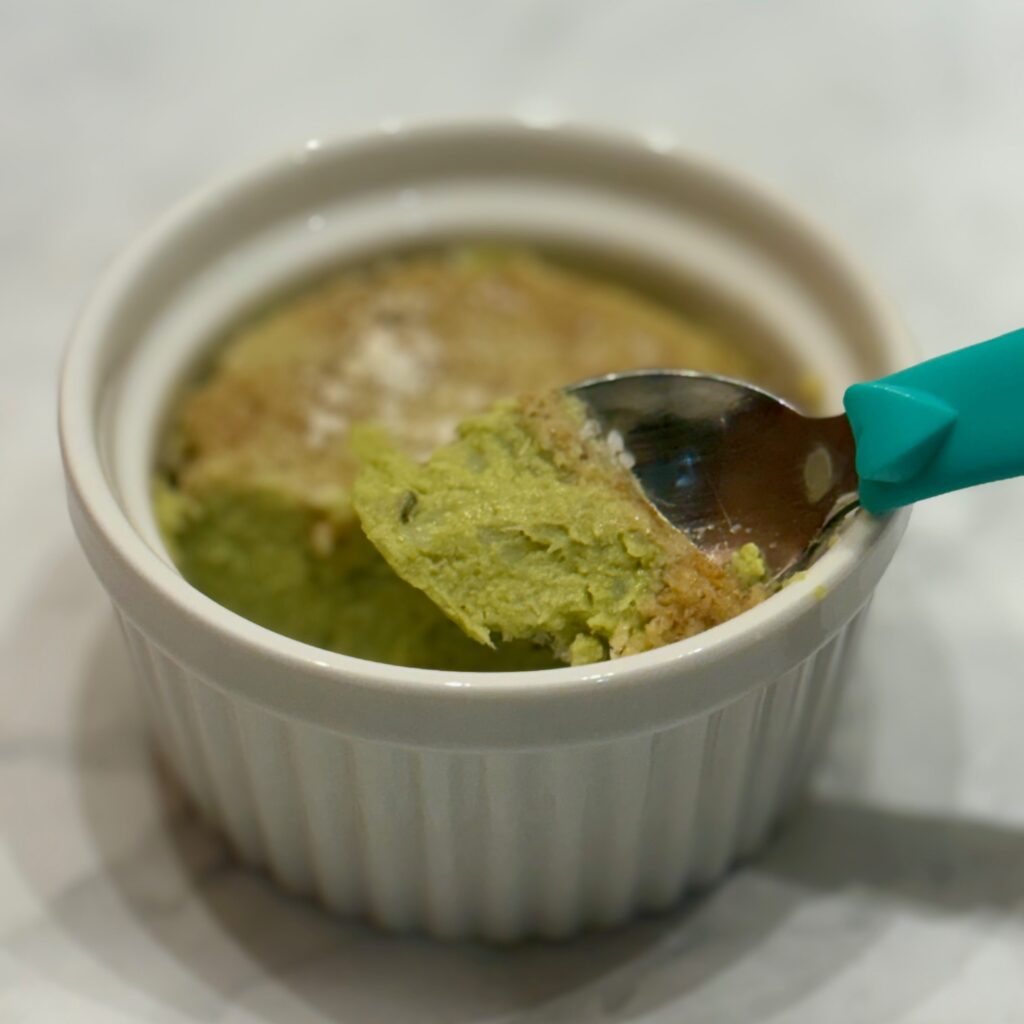

There’s a good reason why you rarely see asparagus recipes on toddler/children recipe sites: it’s really hard to get with and/or around that texture. Or, shall I say textures: asparagus can be too crisp and woodsy, too stringy, and too mushy and slimy. It can be all of the things in a single spear, really–and small children want none of it.
The solution is obvious: keep the flavor; change the form. A custard, an egg-based pudding, is just the thing for that, allowing asparagus’ nutty flavor to shine–in a vessel with the right textures for small children. Sure, it’ll require a few more steps to make than, say, steaming or roasting the asparagus spears; consider the extra work, though, as extra assurance that your child will actually eat it.
(Pro tip: pay special attention to the ‘Serve’ section to determine how best to plate the dish.)
Heat until the batter is fully set, 25-28 minutes.
Allow bowls to cool for 3-5 minutes before preparing to serve (see below).
As is, the custard will come out of the bowl as, well, a green blob: presentation may be key to getting your child to try it. The easiest option, as the recipe photo suggests, is to do nothing: serve it straight out of the bowl/ramekin you cooked it in–just wait until the outside is cool to the touch. You can also make shapes out of the custard, as we did in the additional photo on this page, by cooling it for several minutes before pressing cutouts into it. And, if you're feeling especially ambitious and/or your child is especially forgiving, you could try the Italian way: run a knife around the bowl to separate the custard from the sides, then turn your bowl upside down and let the custard plop down on the plate.
You could sub any number of vegetables in for asparagus here, but remember that the purpose of the custard form is to distill the flavor of the vegetable and not the form. Thus, something like red pepper or beets, with their naturally sweet profile, are likely to be a better choice than, say, jicama or green beans.